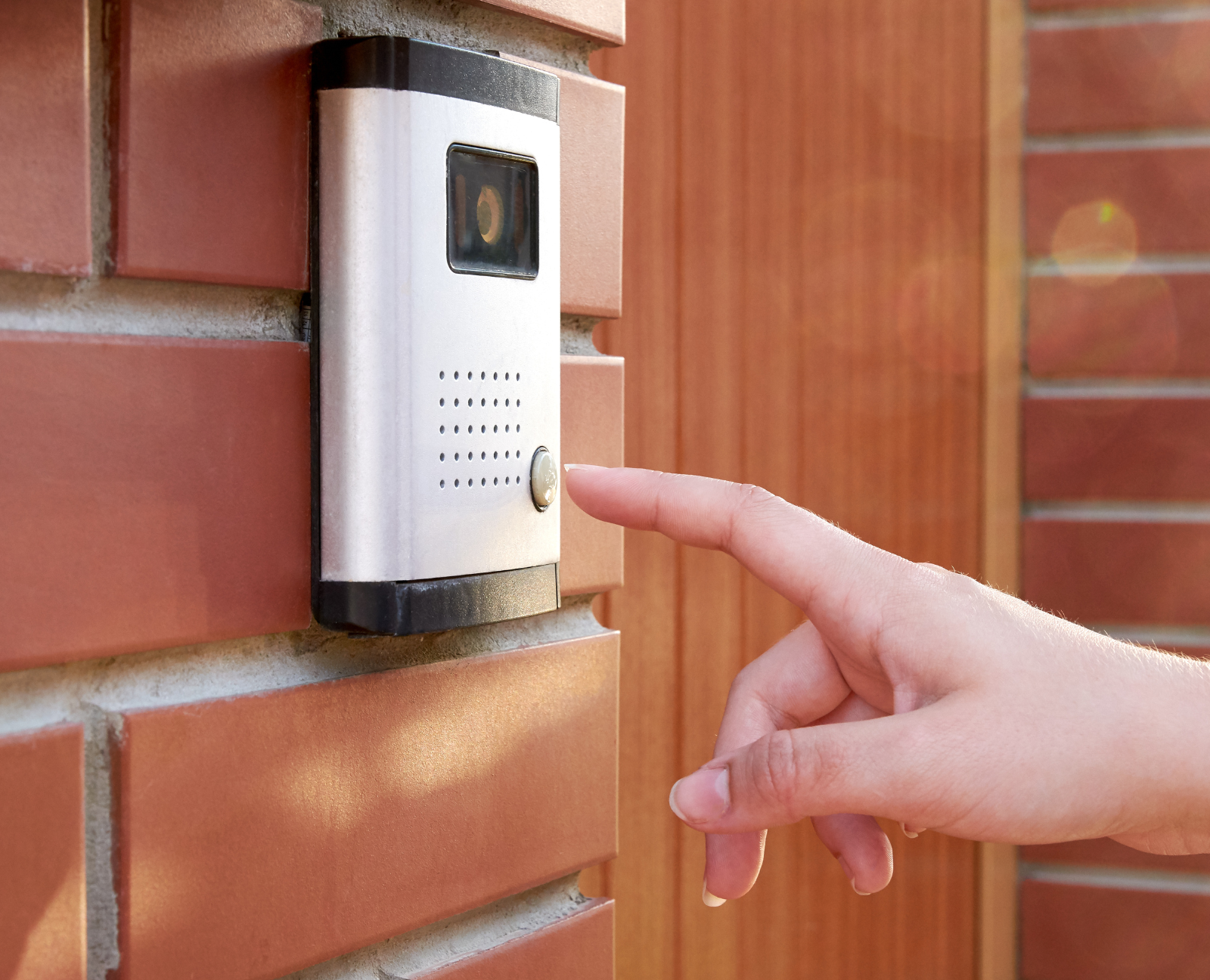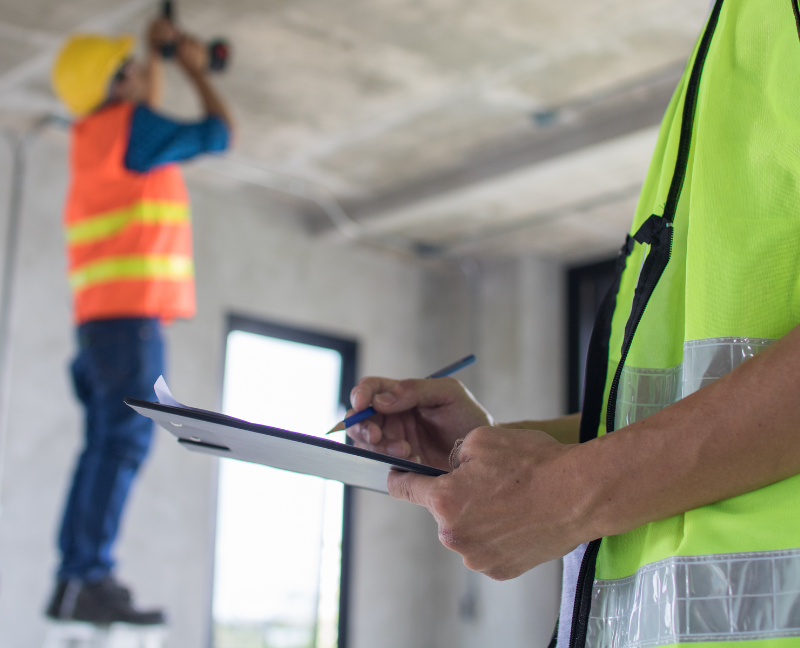There are several reasons why home buying might not push through; however, what if the reason is because you have a change of heart?
Is that reason valid enough?
When is it too late to back out?
While it might be tricky, the thing is, a buyer can definitely back out of a real estate deal they have signed with a seller. However, consequences might arise, particularly if the agreement lacked exit routes. Therefore, it's important to understand your legal and financial rights as a homebuyer. If you're considering withdrawing an accepted offer, here are some things to think about.
The quick answer-- yes!
To put it another way, you have a legal obligation to follow the terms of the purchase agreement you sign. An advance payment known as "earnest money" is given to the seller showing you are serious about purchasing the home and intend to see the transaction through to completion.
"If a buyer is not completely serious, it is unfair to the seller to take their home off the market," says Marc Hagerthey, a Maryland real estate agent with RE/MAX. "A portion of the closing costs at settlement will be covered by the earnest money, which will remain in an escrow account."
It is, however, quite legal to cancel your offer on a home if specific conditions are included in the contract and are not fulfilled. These limitations outline circumstances in which it would be permissible to withdraw without incurring penalties, such as forfeiting your earnest money investment. In most situations, if a contingency in your contract was not fulfilled, the buyer may elect not to purchase the house and receive their earnest money back.
The conditions that must be fulfilled for a home purchase to proceed are known as contingencies, and they are usually included in a normal real estate contract. This involves both parties agreeing on particular tasks that need to be finished in a given amount of time.
This is a clause that allows both parties, the buyers and sellers, to back out of a purchase agreement if certain requirements aren't fulfilled. For example, a mortgage contingency that included criteria that were not fulfilled and required a homebuyer to obtain a mortgage loan by a certain date.
Homebuyers may include conditions for finance, home inspection, selling their own house first, or an appraisal that is lower than the sale price. You can easily withdraw your offer and still receive your earnest money deposit back if you decide to do so because a prearranged contingency was not fulfilled.
If there are conditions in place, a buyer is typically more protected when withdrawing from a transaction. For instance, suppose the home inspection report reveals expensive problems like foundation fractures or a severely damaged roof. You can get away with it if you have a contingency for a home inspection, particularly if the seller declines to make repairs or provides credits to cover the expenses. A finance contingency, which provides you with an escape route if your mortgage loan is denied, is another crucial safety measure.
To protect yourself, pay special attention to the contingencies listed in the agreement, especially the due dates for each. For instance, within 14 days of the contract being signed, you might have to finish a house inspection and request any necessary repairs or credits. To receive final loan approval, a financial contingency may need to be satisfied within 30 days. Ask your real estate agent how to proceed if you have questions or require additional time to finish a contingent activity. To obtain an extension for you, they will probably have to submit a contract addendum that the seller must accept.

Things can become complicated and even unpleasant if a buyer withdraws from a deal for a reason not explicitly stated in the contract. For example, if you withdraw from an offer for a non-contingent reason, you could lose your earnest money. Since you paid that down payment on the understanding that you would fulfill your end of the bargain, the seller is legally allowed to keep your money if you withdraw for any reason not specified in the contract.
For a buyer, this can be unaffordable, particularly if they still intend to purchase another home. Earnest money deposits typically range from 1% to 2% of the home's sale price, however they can be greater.
The National Association of Realtors reports that the median sale price of homes in the United States is approximately $400,000. A buyer who changes their mind might lose anywhere from $4,000 to $8,000 on a house that costs that much, plus legal fees.
However, withdrawing from an agreement for non-contingent grounds can result in more than just financial loss.
The quick answer again is, yes.
A property purchase can be canceled more easily before a contract is signed. However, it is more difficult for you to leave after that or after the contingency periods have passed without getting into financial or legal issues.
In addition to losing your earnest money, the seller may take legal action if you terminate a signed contract for a cause that was not specifically stated and accepted as a contingency.
A buyer who violates the terms of the contract may be sued for "specific performance," in which the buyer is compelled by the court to close on the house. This situation is uncommon, though. According to John Graff, CEO of Ashby & Graff Real Estate in Los Angeles, "this is pretty uncommon." "The courts are more likely to order a seller to close a deal than the other way around."
Certain states include a provision in home purchase agreements requiring both parties to consent to mediation in the event of a disagreement. If your state allows it, you will have the opportunity to directly argue your case to the seller with the assistance of an impartial mediator in the hopes of resolving the matter out of court.
Making the decision to purchase a home is a serious matter that should not be taken lightly. Although there could be severe repercussions, a buyer could withdraw from a real estate agreement they have signed with a seller. Including contingencies in the contract before you sign it is the greatest approach to protect yourself. Here, it can be quite important to work with an experienced real estate agent and perhaps a real estate lawyer as well.
As soon as you've made up your mind, tell the vendor if you must withdraw an accepted offer. Collaborate closely with your lawyer and agent, who can assist you in explaining your reasons for wanting to back out in writing. In the end, you might lose your earnest money deposit, but purchasing a house you don't want or can't afford would undoubtedly be a more costly error over time.
By developing a neighborhood guide, real estate professionals can demonstrate their skills, position themselves as local experts, and build trust with prospective customers. This is a strategic strategy to highlight their expertise.
Whether you are appealing to buyers or sellers, a carefully produced guide has the potential to be an effective lead magnet and a foundational component of your marketing approach.
Neighborhood guides benefit potential buyers by providing thorough information about the neighborhood's amenities, schools, way of life, and market trends. They help buyers imagine what life would be like in a particular place. When you're a seller, they show you know much about the area and can market it well.
These guides help your clients immediately and make you a hyperlocal expert, giving you an edge over other agents. They're also great lead makers who can bring people to your website, get their contact information, and turn those leads into loyal customers.
Get to know the area inside and out to make a complete neighborhood guide that people will like. This study will also make you a specialist in the field, making the guide more valuable.
We'll go over the main points you should make more in-depth below:
2. Organize Your Guide
Divide your guide into sections that are interesting and easy to follow. For instance:
3. Make It Eye-Catching
Make the guide visually appealing by using excellent photos, maps, and infographics. Professional photography lends a sense of legitimacy, and design tools can assist in producing well-designed layouts.
Graphic Design Tools
Stock Image Sources
Geographical Mapping And Visualization
Work With A Designer
You may find graphic designers with real estate marketing experience on sites like 99Designs or Upwork if you want a genuinely expert touch.
Keep A Consistent Branding
Throughout the book, make use of the colors, typefaces, and logo of your company. Your professionalism is reinforced and your guide is easily identifiable with a unified design.

Ensuring your community guide's content conforms with Fair Housing Act regulations and stays away from discriminatory language or practices is crucial. Discrimination in housing on the grounds of race, color, national origin, religion, sex, family status, and disability is illegal under the Fair Housing Act.
Use The Right Words
Pay more attention to the neighborhood's characteristics than its residents when discussing it. Highlight the local schools, parks, recreational opportunities, and housing possibilities. For example:
Rather than saying: "This neighborhood is ideal for young families."
Say this: "There are great schools, playgrounds, and recreational facilities in this area."
Furthermore, make use of inclusive language that captures the neighborhood's variety by referencing community or cultural activities without giving the impression that they are restricted to any one group. This guarantees that the description will always be inclusive.
Emphasize The Facts Rather Than Your Preferences.
Instead of using your descriptions to support your subjective beliefs or presumptions, base them on objective facts. For instance:
Rather than saying: "This neighborhood is ideal for seniors and is quiet."
Say this: "Easy public transportation, a great senior center, and accessible walking trails are some of this neighborhood's amenities."
Be Cautious With Schools And Education
Avoid forming subjective opinions on the quality of schools, even though they are a significant consideration for many purchasers. Rather:
Avoid Steering
Depending on personal traits like color or family status, steering is the process of directing consumers toward or away from particular communities. Your guide should give clients the freedom to make their own judgments while presenting facts in an impartial manner.
Make Sure Your Material Is Updated
Make sure your neighborhood guide is up to date with the latest rules, laws, and best practices by reviewing it frequently. If in doubt, have your content reviewed by a legal or compliance specialist.
ChatGPT and other artificial intelligence (AI) techniques can improve the content of your guide and save time. Here are some examples of how to incorporate them:
Use these SEO best practices to increase your guide's exposure in search engine results:
A lead magnet is a useful resource or piece of content that is provided to prospective customers in return for their contact details, like phone number or email address. By catering to their particular requirements or interests and offering instant value during the early stages of relationship-building, it acts as a tool to draw in prospects.
On Your Webpage
Use a call to action (CTA) such as "Download our comprehensive guide to living in {neighborhood}!" to highlight the guide on a special landing page."
When it comes to email marketing
To cultivate your email list, use the guide. For instance:
On Social Media
Posts such as "What's it like to live in {neighborhood}? " hint at areas of the book. See our in-depth guide!"
Using Facebook advertisements and PPC
To increase visitors to your landing page, run Facebook advertisements or targeted pay-per-click (PPC) campaigns. Make use of persuasive advertising language that emphasizes the benefits of the guide, like "Learn all there is to know about {neighborhood} -- get our free guide right now!"
Is it possible to buy a home after foreclosure?
The answer is: yes!
Yes, it's possible; however, obtaining a mortgage can be challenging since lenders see foreclosure as a huge threat to your ability to repay the loan.
Nonetheless, there are ways how you can restore your credit history and prove to lenders that you are now a responsible borrower.
In this post, we'll answer questions on foreclosure, including how long you should wait before buying a home, how to get a mortgage, etc.
But first, let's start with the basics.
When a borrower defaults on a mortgage or other loan secured by a property, a lender may legally take possession of the property through a process known as foreclosure. The property may then be sold by the lender to recoup the unpaid balance.
Learn more about foreclosed properties by clicking this link.
Borrowers who have had their homes foreclosed on typically have to wait a certain amount of time before receiving a new mortgage loan from another institution. Extenuating circumstances, like a medical emergency, might shorten the time frame for some loan kinds.
Obtaining a conventional loan—one that mortgage market-makers like Fannie Mae or Freddie Mac will purchase—after a foreclosure can take up to seven years. According to Jilyn Crawford, senior loan officer and sales manager at American Family Funding in Santa Clarita, California, you might only need to wait three years if the foreclosure was caused by a medical condition or a loss of work.
Only two years must pass between foreclosure and applying for a new loan, according to the Department of Veterans Affairs (VA) for veterans and active military personnel. Keep in mind that if you are eligible for a VA loan, you will receive a home loan entitlement, which is the highest amount that the VA promises to reimburse the lender in the event of default. "In a foreclosure, I have seen veterans lose some of their entitlement, but they still have some remaining. Crawford says, "It's all about the foreclosed amount."
According to Crawford, if you have a foreclosure on your credit history, you must wait three years to be eligible for USDA loans, which are available mostly in rural regions.
According to Crawford, you may be eligible for another loan immediately following your foreclosure if you have a non-qualified mortgage (non-QM), or a loan that does not satisfy regulatory requirements. Keep in mind that compared to qualifying mortgages (QM), non-QM loans have different eligibility requirements, additional fees, and higher interest rates.
If you can convince a lender that you're prepared for homeownership, you can reapply for a mortgage even after a foreclosure:
Check for any past-due accounts forwarded to a collection agency by obtaining a complimentary copy of your credit report at AnnualCreditReport.com. It is helpful to contact the agency and attempt to work out a payment schedule if you are certain these accounts belong to you.
If you discover any mistakes on your credit report, collect supporting documentation and dispute it online, over the phone, or by mail with the relevant credit reporting company, such as TransUnion, Equifax, or Experian.

After a foreclosure, you will need to raise your credit score to purchase a home.
Make an effort to pay all bills on schedule. According to Crawford, it is extremely difficult to remove late payments from your credit report. If you don't frequently make late payments, you can try asking for a one-time goodwill adjustment, which most creditors would grant. To prevent forgetting to pay your bills, try setting them up for automatic payment.
Try to pay more than the minimum amount owed on any credit cards you may have. Speak with the creditor and ask for a payment plan if you are temporarily unable to make the minimum payment.
Consistency in employment and income is often preferred by lenders. Finding a new work should be your top priority if you just got unemployed.
Be aware that your credit record, which contains details about the foreclosure, may be examined by your future employment. Generally speaking, this shouldn't affect your chances, but it can if you're applying for a position that directly involves money. It's vital to be open and honest about your efforts to overcome your previous credit setbacks.
You must demonstrate to a lender that you can repay the loan in the event of an emergency if you want to be eligible for another mortgage after foreclosure.
Crawford thinks it can be difficult, but if you can, reduce small expenses like eating out. Other options to save money include switching your cell phone or auto insurance plans, as well as canceling your cable TV or streaming subscription.
A new lender can be an ally while you work out how to purchase a home following foreclosure. Crawford advises looking for a lender who understands your circumstances or who offers a variety of options that can meet your needs. For example, choose a lender who specializes in VA loans if you're looking for one.
"All lenders are fishing in the same pond," according to Crawford. "The difference is in the loan officer and the knowledge that officer has," she added.
Reading customer reviews from different platforms is also helpful when you want to learn more about the lender's quality of service and experience.
Examine your finances and yourself before purchasing a new house following a foreclosure. Are you prepared to assume homeownership responsibilities once more? In addition to the monthly mortgage payment, consider the expenses associated with property ownership, such as maintenance and repairs. And think about the events that caused your previous house to be lost. Will they happen again?
Lastly, evaluate the local real estate market. Crawford advises, "You need to look at the state of the market at that time and whether a lender will work with you."
The benefits of homeownership are indisputable. However, there are instances where extending your rental period might help you pay off debt, improve your credit, and increase your assets. When you're ready, all of those factors will make buying a house after a foreclosure much less stressful.
If you want to learn more about foreclosure or homebuying transactions, click this for free resources.
Doorbell cameras are popular but does everyone, specifically real estate brokers, like them?
In this post, we'll find out what our real estate experts really think about these high-tech devices and whether they love or hate seeing these security gadgets on their listings.
When they see your camera, some folks might wonder why you feel the need for one. “Is it a deterrent for crime or a neighbor taking your morning newspaper?” says Coldwell Banker Warburg broker Steven Hoffman. "This could lead to buyers having unpleasant questions at the beginning of the home tour," she added.
Your camera may make your space feel more like a reality TV show than a home, according to Mihal Gartenberg, a Coldwell Banker Warburg broker. He explains that buyers may feel that they need to "be cautious about how they behave and, even more importantly, the things they say to each other about the home," which may make it more difficult to imagine themselves living there.
Broker Suzanne Weinstein believes that some homeowners face the risk of entering into an arrangement where the neighbors are already a little turned off by your presence. After all, nobody wants to start on the wrong foot. "Video-audio recording devices violate most proprietary leases that prohibit causing a nuisance or interfering with the quiet enjoyment (and right to privacy) of neighbors," she argues, pointing out that doorbell cameras such as Amazon Ring record private conversations.
According to Massachusetts real estate agent Jennifer Baptista, real estate brokers enjoy asking their clients about their initial impressions, but they are unable to do so when the homeowner is watching and listening. "It's challenging because I prefer to understand my clients' viewpoints in real-time," she adds, adding that she frequently loves to inquire about their "first impressions" as they approach the front door.

They can help homeowners feel a little more at ease about opening their homes to strangers, which is the major reason Heather Malone, who works with Coach Realtors on Long Island, doesn't mind seeing them at listings. "At times, a home may be showing when it is vacant, and it is always good to keep an eye on your asset when you’re not there," she explains.
Additionally, an agent and seller may decide to maintain a lockbox on the property. When this occurs and neither the seller nor the listing agent is present to show the house, it is beneficial to find out which agents were in and out of the property during that period and whether there were any problems when the seller returned home.
According to Mike Robinson of Century 21 AllPoints Realty in Connecticut, doorbell cameras make a nice parting gift, even though some real estate agents may have unfavorable opinions about them. He explains, "I give them as closing gifts because I deal with a lot of out-of-state buyers." “I am big on personal safety and security and figure if someone is new to a neighborhood, the best way to give them some peace of mind is the ability to watch their front door 24/7, no matter where they might be.”
Avoiding porch pirates is a top concern for many individuals since, as we can all agree, we spend a lot more time clicking "add to cart" these days than we do browsing the store's aisles. "In addition to addressing safety issues within the house, doorbell cameras also reduce package theft in the neighborhood as a whole," explains Jaime Jones and Julie Mariani Cassel of J+J Team Homes. 49 million Americans were robbed by porch pirates in the previous year. Last year, an estimated $2.4 billion worth of merchandise was stolen from porches across the United States.
According to Compass Broker Kimberly Jay, doorbell cameras have become very commonplace due to their affordability and popularity. Doorbell cameras are standard equipment in single-family homes, townhouses, and non-doorman buildings. "Anyone can buy one from a big box store for less than $100," she adds, adding that they can give the impression that the sellers are tech-savvy or intelligent.
How about you? What are your thoughts about the doorbell camera? Would you have that security device in your home or not?
A wide range of elements influence the dynamic and ever-changing real estate market. Seasonality is one of these elements that frequently goes unnoticed but can have a big influence on it. Both the availability and demand for real estate as well as the pricing at which they are purchased and sold can be impacted by the seasonality of the seasons. We'll go into great detail on how seasonality affects real estate pricing and what investors, buyers, and sellers need to think about when dealing with this part of the market.
Like many other businesses, real estate is subject to year-round changes. Although these variations can differ by region, some broad patterns can be seen, and they are frequently linked to the seasons.
Spring: In the real estate industry, spring is usually a busy time of year. Longer daylight hours and warmer temperatures encourage buyers to begin their home search. To avoid disturbance to the school year, families with children frequently choose to relocate during the summer. Because of this, demand is typically higher and prices are more expensive in the spring.
Summer: With many purchasers hoping to finalize agreements before the start of the following school year, the summer months remain a robust time for real estate. Nevertheless, the market might begin to cool off as the summer heat builds.
Fall: Although there may be a little less action in the fall than in the summer, it's still regarded as a rather lively season. Buyers who didn't find what they were searching for in the spring and summer can still be seeking, and the weather is frequently favorable.
Winter: The real estate market is typically at its slowest during the winter. Reduced daylight hours, holiday obligations, and colder temperatures might put off both buyers and sellers. It's important to remember, though, that some buyers intentionally look during this period in the hopes of discovering motivated sellers who are open to negotiation.
Let's examine the specifics of how seasonality affects real estate prices now that we have a general idea of how seasons might influence the market.
A major factor in influencing real estate prices is the law of supply and demand. Due to increased demand in the spring and summer, sellers may have the upper hand, which would raise prices. On the other hand, buyers might have more negotiating power in the winter, when demand is weaker, which could lead to lower prices.

The number of properties on the market may also be impacted by seasonality. There is more inventory to pick from in the spring and summer when more sellers market their houses. More competition among sellers may result from this, which could drive down prices. Due to fewer listings, buyers may have fewer options in the winter, which could result in higher pricing.
Seasons can also affect the psychology of buyers and sellers. For instance, when the weather is nice and the gardens are in full flower in the spring, purchasers might be more prepared to pay extra for a property. However, to speed up a transaction, dealers can be more inclined to bargain for lower pricing during the winter.
It's crucial to remember that each place may experience seasonality's effects differently. The seasonal variations might not be as noticeable in warmer regions as they would be in places with different seasons. For example, winter may be the busiest time of year for real estate in ski resort cities.
Having a solid understanding of seasonality can help real estate investors make wise choices. When the market heats up, purchasing in the off-season, when demand is weaker and prices are lower, might result in higher investment returns.
Buyers: When looking for a home, take your schedule and priorities into account. Although there might be more selections in the spring and summer, the winter months may provide greater bargains.
Sellers: Remember that you might get a higher price during the spring and summer months if you have the freedom to decide when to list your home.
A crucial but frequently disregarded element in the real estate market is seasonality. Knowing how it affects prices, supply, and demand can help investors, buyers, and sellers make wise choices.
Understanding the effects of seasonality can help you successfully navigate the real estate market, whether your goal is to buy your ideal house, sell a property, or make smart investments. Therefore, keep in mind that seasonal variations could influence your experience and results the next time you set out on a real estate adventure.
Placing a "For Sale" sign in the yard and waiting for offers isn't the only thing involved in selling a house. You need a strategy if you want to sell it for top dollar. These ten professional-backed suggestions will help you increase the value of your home and draw in the right purchasers, whether you live in Indiana or elsewhere.
Let's get started!
Have you ever driven by a house and made an instant judgment? The same is true for buyers. The good news? A few minor adjustments can have a big effect.
Local Tip: Homes with excellent curb appeal in Indiana neighborhoods like Indianapolis and Fishers typically sell more quickly and for more money.
Buyers don't want to see that pile of mail on the counter or your enormous collection of fridge magnets. They want to visualize a place they can live in.
Here are the things you can do:
Before selling, not every improvement is worthwhile. Although a complete kitchen makeover is unnecessary, minor adjustments might yield significant benefits.
Have you ever noticed how welcoming model homes feel? That is all because of staging. Although hiring a professional is not necessary, a little work goes a long way.
We understand that everyone wants to sell their house for the most money. However, putting a home on the market for too long might make it stale, and overpricing will turn off buyers.
Work with a local expert or real estate agent (a.k.a. US) to price it competitively from the start rather than setting your sights too high and running the danger of price reductions later.

The days of just posting a listing on real estate websites and moving on are long gone. Your house needs to look amazing online if you want high-ball offers.
Consider these:
We understand that having strangers wander through your house at unexpected times is bothersome. However, your chances of receiving a fantastic offer increase with the number of showings.
The shaky stair railing or the leaking faucet will be noticed by buyers. Fix the simple things now rather than waiting for a house inspection to reveal problems.
A house with lower utility costs is a big selling point. That said, make sure to emphasize any energy-saving improvements you've made in your listing, such as:
Customers searching for long-term savings may be won over by these minor features!
Without a doubt, you can sell your house on your own, but do you really want to handle all the paperwork, negotiations, pricing, and marketing by yourself?
An experienced agent, like us here at RE/MAX Advanced Realty, is aware of:
With the proper team by your side, selling your house doesn't have to be a daunting task. RE/MAX Advanced Realty can assist you whether you want to identify the ideal community for your next move, enhance the value of your house, or make the selling process go smoothly.
Are you prepared to move forward? For a free home appraisal and customized selling plan, get in touch with us right now! Let's discuss your objectives and come up with a plan that will get you the best deal.
Whether you're craving a cozy retreat, a home filled with character, or a stylish modern escape, there's no better time to find a space where your heart truly belongs.
Your dream home is more than just a place to live—it's where memories are made, where laughter fills the rooms, and where every corner brings a sense of peace and comfort.
Imagine cozy evenings by the fireplace, lazy Sunday mornings with coffee on the porch, or hosting family gatherings in a space that feels just like you.
This February, fall head over heels for a new place to call your own. Browse through our featured listings, and discover a home that speaks to your heart, your lifestyle, and your future.

🏡 243 S Madison Ave, Greenwood | $2,399,000
Step into a piece of history with this iconic property. Originally built in 1850 and completely rehabbed to preserve its charm, this property offers nearly 2 acres in the heart of Old Town Greenwood. Perfect for an event center, bed and breakfast, or redevelopment, this is a rare opportunity to own a prime piece of land with unlimited potential.

🏡 11383 Sea Side Ct, Fishers | $824,000
A stunning 5-bedroom, 3.5-bath home in Bayview Estates, just steps from Geist Reservoir! Built for entertaining, with a spacious open concept, gourmet kitchen, and walk-out basement featuring a wet bar. Perfect for creating unforgettable moments with family and friends.

🏡 4104 W Fox Trl, Trafalgar | $549,900
For nature lovers, this custom-built home on 1.75 acres offers not just a home but a lifestyle. Enjoy full lake privileges, a cozy fireplace, and an expansive screened balcony—perfect for those seeking a peaceful retreat surrounded by nature’s beauty.

🏡 8836 Hornady Ct, Indianapolis | $425,000
This 4-bedroom home features stunning pond views, a spacious kitchen, and a fully finished basement. Ready for entertaining, with cozy family areas and plenty of room to host guests, making it the perfect backdrop for any occasion.

🏡 612 Reunion Ln, Greenwood | $424,498
A sun-filled 4-bedroom, 2.5-bath home with a vegetable garden, spacious basement, and warm, inviting character. This home offers the perfect mix of peaceful relaxation and entertaining possibilities—ideal for making memories.
Whether you're looking for more space, a fresh start, or the perfect cozy retreat, your dream home is out there—and we’re here to help you find it.
Don’t let the love month pass without taking the next step toward a home that truly fits your lifestyle.
If these listings aren’t quite what you’re looking for, let’s find the one that is.
We’re ready to create a customized home search and guide you every step of the way to make sure you find the perfect match.
📩 Let’s get started—tell us what you need, and we’ll help you find the home that checks all the boxes.
The home inspection is one of the most stressful parts of purchasing a property. An inspector will examine the entire house during this consultation and look for any possible problems in the house.
The inspector will not assess your future home based on its quality, nor will the inspection be a pass/fail test. The objective is to present you with an unbiased perspective of the home so that you can proceed with the purchase process with confidence.
Although it can be difficult for buyers to see every possible defect in the home they may buy, a home inspection is crucial to finding any issues that can end up being deal breakers. As the purchaser, you must be aware of any serious problems. Even if you proceed with the purchase, you can negotiate the asking price or demand settlements in light of the repairs the inspector deems essential.
But the biggest question is: what do house inspectors search for?
Knowing the answer to this question will help get your inspection report ready when it arrives.
Some inspectors will take homebuyers through the entire process so you can personally view any possible problems with your house up close. You should never let a real estate agent, the seller, or the inspector prevent you from showing up for your inspection.
The outer layer that protects your loved ones and possessions from the weather is called the exterior. The exterior must endure normal wear and tear, severe weather, and the house's gradual deterioration over time.
One of the most crucial aspects of any house purchase, whether it's a historic bungalow or a new development, is the exterior home inspection. The remaining systems within the house might be supported by a sturdy shell.
Climbing onto your roof is one of the first things the home inspector will do. For it to survive all-natural conditions, they want to make sure that there are no leaks or damages. The inspector will evaluate the following objects on your rooftop:
In addition, the inspector may search above your roof for any overhanging tree limbs that might be damaged during a storm. Additionally, rodents may use tree limbs as superhighways to scale roofs to enter homes.
Although your inspector won't be able to tell you how old the roof is, they can provide an assessment of its state.
The next component of the exterior that house inspectors examine is the foundation. If your home has a crawl space, they might scale it to get inside or do a walk-around assessment of the outside.
A home inspector searches for fractures or indications that the house is sinking. If the floors are slanted or the doors don't close correctly, they may also search the interior for indications of foundation problems.
Another important sign that inspectors search for is water. Images of still water, indications of water damage, and inadequate drainage will be captured. Water damage to a house can take many forms, from mold growth to damage to the foundation. In addition, the home inspector will look for signs of wetness around the door and window frames.
When inspecting the foundation, the home inspector will examine the external walls, but they can also offer independent observations about how these buildings seem. They'll be on the lookout for any damage, rot, or decay that can jeopardize the structural integrity of your house. The inspector will also check the condition of the paint and siding material.
A home may appear worn out due to peeling paint. While it is undoubtedly an aesthetic concern, it may also indicate another problem. If the paint and other external coatings have worn off, water may leak into the wood siding. Your external walls may deteriorate or develop mold because of water. For this reason, purchasers should not ignore faults that appear to be minor.
The home inspector will check your home's windows and doors as the final exterior feature. When examining these areas of your house, your inspector will look at the following items.
The home inspector will also evaluate the area around the door and window frames for signs of moisture. To prevent damage to the surrounding structure during a storm, they wish to determine whether the windows are prone to leak. Windows that leak can cause wood to deteriorate and create an ideal setting for mold growth.
Your home inspector might move inside to evaluate the numerous internal systems that keep your house habitable after reviewing the exterior of the property. Plumbing and electrical problems that first appear trivial can develop into costly and even dangerous difficulties.
These issues can be found during the house inspection, and it can also assist you in calculating the associated repair costs.
The plumbing in the house is assessed in the first section of the interior home inspection. The inspector will check your pipes, faucets, and fixtures for any indications of leaks or problems. Here's the thing, plumbing problems, no matter how small, can mount up.
According to EPA estimates, a single drop of leaky faucet can waste up to 3,000 gallons of water annually. That's the same as 180 showers. Your water bill will increase if you have plumbing issues and until they are fixed, it will cost you money.
The home's water pressure and water heater's state will also be examined by the inspector. They will check the drainage in each sink and shower the house's capacity to generate hot water. Clogs can result from the buildup of debris and hair, but they can also be indicators of more serious problems with the pipes.
Not only is the plumbing problem costly to fix as well as the water bill, but it can also be damaging to your property. Water leaks can ruin wood, encourage the growth of mold, and produce dangerous living conditions.
An additional crucial component of the home inspection is testing the electrical systems. Safe wiring techniques are crucial because electrical problems are one of the main reasons house fires occur in the US.
Most home inspectors begin by checking the electrical panel to make sure everything is in compliance with the code and has the proper labels. To meet the household's energy needs, the panels must also have enough power. After that, home inspectors will check the electrical outlets to make sure nothing is sparking or smoking and that everything is functioning properly.
You should contact an expert because this portion of the house inspection might be risky. Other than avoiding potential electrocution, a certified home inspector can do a comprehensive assessment of your electrical system.
The National Society Of Home Inspectors estimates that replacing an HVAC system can be anywhere from $5,000 to $12,000.
You need your heating and cooling systems to stay comfortable in your house all year round. They regulate the humidity levels in your house in addition to the climate.
Your inspector will evaluate the age and performance of the HVAC unit, as well as the condition of the ducts and filters. They will test how chilly the air is in various vents to determine whether the HVAC system can successfully convey cold air around the house.
Like water leaks, HVAC leaks can be expensive. Your system may operate longer than you wish, increasing your electric bill and cooling portions of the house that do not require it.
Home inspections are grubby, sweaty work. If your house has an attic, your inspector will scale the structure to assess the insulation. The insulation in your attic is your first line of defense against hot air from entering your home during the summer when temperatures can get very high. Having well-insulated walls will also assist in lowering your energy costs by retaining cool air inside your home.
The inspection report will include information on insulation and verify that your family has safe attic ventilation. It will also draw attention to any indications of rats, vermin, or other unwelcome house guests. Attic water damage indicators may also point to past or present roof issues.
The next filthy part of the house inspection is entering the crawl space. Although there isn't much opportunity for movement in these areas, they are crucial for maintaining the stability of your foundation and preventing water from entering your house.
This section of the house inspection checklist will involve the hired professional searching for indications of water damage, mold, or moisture. They also check the foundation here for structural problems or crevices.
Radon testing is a crucial component of the basement inspection. Radon, a naturally occurring, odorless, and invisible gas, has the potential to cause lung cancer if not controlled.
Poor ventilation and basements are common places for radon buildup. If you want to make sure your future home is safe to live in, radon testing can be part of your home inspection package.

Your home inspection report will be a lengthy, detailed, multiple-page report. To provide buyers with visual references for the concerns they identify, the majority of house inspection professionals take photos during the process.
To further assist you in evaluating the condition of the house you plan to buy, below are some more sections of the home inspection checklist:
Inspectors of homes evaluate the internal walls and ceilings to detect any indications of water damage or problems with the foundation.
They look for warping in the walls and flooring, as well as cracks and stains. A small crack could be a sign of something more serious.
Unfortunately, inspectors may not always be able to identify every potential problem. Paintings and other decorations that can conceal issues cannot be moved. Your inspector will make every effort to assess the places they can access and search for signs that need major repairs.
The home inspector will assess your floors for any damage, cracks, or unevenness. Problems with flooring can have a variety of causes, some of which are more severe than others. First, warped or uneven floors may be a sign of foundation problems or water damage.
This could also mean the seller employed a subpar contractor or attempted to install flooring themselves. If you want to replace the floors shortly after you move in, these latter issues should not be as problematic.
It can still be inconvenient if the flooring difficulties don't indicate serious structural problems. Uneven flooring can be dangerous for tripping and is difficult to walk on. When you ultimately get around to starting your flooring job, you could also have to shell out extra money to fix uneven floors.
The interior and external staircases are also inspected as part of your house inspection. The inspector searches the exterior for evidence of decay that would make entering or leaving the building dangerous. The inspector wants to ensure that using the stairs safely is something you and your family can do inside.
A flight of steps can be dangerous due to uneven stairs, loose rails, unexpected lips, or damaged floorboards. When using a poorly designed set of stairs, even cautious homeowners run the risk of falling.
A few extra components of a home inspection are covered during your session. This is how the professional home inspector will conclude the report.
A lot of house inspectors will check if the equipment in the kitchen and laundry work. They will test the washer and dishwasher to make sure they function as intended, inspect the stove's burners, and ensure the oven is calibrated. However, the inspection will not always cover this. Ask your inspector if they use appliances in their work.
Additionally, if the appliances are being taken by the seller when they relocate, testing is not required. For instance, if the seller is relocating with the washer and dryer, there's no need to test them.
For the safety of the house, a functional fireplace is necessary. This might have an impact on the foundation of the home in addition to being crucial if the homeowner wishes to start a fire in the winter.
The report from the house inspection will vouch to the chimney's adequate ventilation and point out any damage. Whether the chimney needs to be cleaned will also be mentioned in the report.
It's a good idea to hire a chimney sweep once a year before the weather turns cold, even if you buy a home with a clean chimney.
Most house inspections include checking the garage doors' operation. Your inspector will certify their flawless opening and closing. Additionally, they want to ensure that if something physically strikes the garage door while it is in motion or blocks the sensors, the door will open.
This is a matter of safety. A damaged sensor may not stop the garage door from shutting if a child or pet goes beneath it.
During their two to four hours in the house, home inspectors try to be as thorough as possible, but there are some areas of the property they do not check.
The rules of the area and even the inspection firm determine what is and isn't included. A few items that your inspector might overlook are as follows:
If you want specialist inspections, such as assessments of your swimming pool or indoor air quality, your real estate agent will coordinate these extra meetings with the seller and listing agent.
Rather than purchasing a house you are not completely pleased with, it is preferable to cause the seller some inconvenience by doing a second inspection.
Home inspection fees for prospective buyers run between $200 and $500, but the cost is justified. In addition to being mandated by the majority of mortgage firms, a professional home inspection provides buyers with accurate information regarding the condition of the property. Before taking possession of the house, buyers can find any deal-breakers or arrange for repairs to be made after they move in.
Your real estate agent should attend this meeting, and they will go over your inspection report with you. They are a great source of information to help you comprehend the inspector's findings and how they affect the house-buying process. You do not have to be a professional builder or real estate agent to buy a property. Rather, you may count on the assistance of these experts.
To find an Indiana real estate agent who can simplify the home-buying process, work with us at RE/MAX Advanced Realty.
We can help you with every stage of the procedure and get you ready for the house assessment. With us, you'll be confident reading the inspection report. Having a thorough understanding of your new house can be empowering.
Take the initial steps toward buying a house by reaching out to us today!
The sale price of your house is just the initial outlay when you decide to purchase one. Closing fees are associated with every transaction, regardless of whether you buy with cash or a mortgage.
Closing costs refer to a range of expenses associated with the sale of a home. They vary according to the type of transaction, your state, and the market value of your home.
For cash buyers, it's critical to estimate your closing costs with precision. Cash buyers must cover these costs at or before the closing appointment, although buyers with loans can frequently factor these costs into their mortgages. You don't want an unforeseen expense to take you off guard.
In this post, you will learn how to calculate closing expenses when making a cash payment. It covers all the different expenses you should anticipate and their inclusions, so if you're interested in knowing what to consider when keeping tabs on your closing expenses, just keep on reading.
Although closing costs are sometimes referred to as a single item, they are composed of multiple parts. Here is a breakdown of common closing fees and what you should expect to pay for each.
Title Insurance And Title Search
Anyone acquiring a home is required to conduct a title search. The title company will check the property for liens and other issues that could jeopardize the transaction. For instance, for the sale to proceed, the seller would have to settle any unpaid balances on the contractor's invoice in the event of a lien from a previous contractor. Along with looking for liens on the property, such as a former spouse who doesn't want the house sold, the title search also looks for other problems.
The title company will obtain title insurance for the house following the title search. This protects against title fraud and other future problems for the new owner. In a cash transaction, title insurance is an optional extra, but it's also a little one-time cost that keeps you safe for the duration that you own the house. Get in touch with the title company if you have any queries about acquiring this insurance.
Depending on where you live, you should budget between $75 and $200 for a title search when anticipating closing costs. Title insurance typically costs 0.5% to 1% of the house's sale price.
Escrow Charges
When money associated with a real estate transaction is held in escrow, it is done by an independent third party. To hold the earnest money deposit, a title company normally opens an escrow account at the beginning of a transaction. The title firm will place the house in escrow until both parties have signed the closing documents after you pay them for the property.
This function is crucial during the purchasing process, even though you might not require an escrow account once the transaction is finished. It protects your funds and facilitates a smoother exit from the transaction if needed.
When calculating closing costs, escrow fees are expected to be 1% to 2% of the home's sale price.
At the closing table, property taxes are often paid by both purchasers and sellers. They only pay taxes during the time they possess the property because they individually pay prorated amounts. Property taxes are paid by the seller for the tax year in which they were the owner; the buyer is responsible for the remaining amount.
For instance, the seller only has to pay taxes for four months if the tax year ends on April 30 and the seller closes on January 1. The buyer bears the tax liability for the final eight months of that particular year.
Since sellers must know when the tax year starts and how much they will be expected to pay in property taxes, this is one of the most difficult closing fees to predict. By obtaining this data, they can better prepare to go over their concluding remarks.
On the other hand, the average American pays property taxes equal to 1% of the value of their home annually. This can act as basic guidance until you have precise property-specific tax information.
Homeowners Association (HOA) Fees
These expenditures may need to be included in your closing costs if you are purchasing a home with a homeowners association. Similar to how property taxes are handled, HOA fees are often paid for by both purchasers and sellers pro rata, depending on when the house is sold. While the seller was residing in the home, they were accountable for paying their share of the fees; after that, the buyer assumed responsibility for paying the fees.
You might have to pay a portion of your HOA dues up in advance at closing as a buyer. While some HOAs accept monthly payments, others have one-time fees that must be paid when you move into the neighborhood.
The average homeowner will pay $191 in monthly HOA dues as of 2021, or about $2,292 annually. Before making an offer on a house, find out about HOA dues so that you fully understand your monthly expenses.

Insurance For Homeowners
At closing, you may also be required to pay the premium for your homeowner's insurance. Both cash purchasers and buyers who apply for mortgages frequently experience this. You can immediately start protecting your house after paying the entire cost of your insurance.
This insurance expense is typically distributed among mortgage holders through monthly installments included in their loans. Cash buyers can arrange with their insurance companies to get monthly bills for their coverage or to obtain lump sum payments that are sent annually or semi-annually.
Annual premiums for homeowners insurance range greatly depending on the state, kind of property, and location of the residence; the average premium is $2,377.
Legal Fees
Your closing costs will include a line item for real estate attorney fees. While some states mandate using a real estate attorney when buying or selling a house, others only advise doing so. An attorney may be hired by your real estate agent or title firm to ensure that all of the paperwork is accurate and enforceable.
Attorney costs differ by state and type of legal practitioner. A closing should cost you between $500 and $1,500. Unlike the hourly cost attorneys charge for particular real estate services, this is typically a flat fee.
Recording Charges
The government charges a recording fee to keep records of any changes in property ownership within the county. Although they could differ by state, these government fees typically cost about $125. Whether purchasing with cash or a mortgage, this is a one-time expense that the buyer is responsible for.
Inspection Charges
You will have to pay the home inspector's costs before the house closes if you hire them to inspect the property before making the purchase. While some house inspectors require payment before or right away after services are provided, others will let you pay them after closing.
These invoices may include the cost of your scheduled additional inspections in addition to the standard home inspection. You will be responsible for these expenses, for instance, if you ask for additional inspections of the electrical wiring, chimney, pool, or foundation.
Depending on your location and the size of the house, a home inspection might cost anywhere from $300 to $600 on average. In certain parts of the nation, these expenses might be more.
Assessment Charges
An appraisal creates a reasonable sale price and tracks the property's value, whereas an inspection determines the house's condition. Although they aren't typically required for buyers with cash, appraisals are essential for those who need mortgages. Having said that, certain sellers may still want appraisals, or some deals may need them for valuation purposes.
This bill will be added to your closing fees if you order an appraisal. The cost of your home appraisal will vary based on your location and the size of the house, from $700 to $1,00.
How Much Closing Cost Do You Need If You Pay Cash
You should never be surprised by your closing costs. A good deal before you get to the title business to sign this paperwork, your real estate agent should take you through every charge as it happens and give you an idea of how much closing will cost. You should be able to get example closing documents depending on your target communities and budget even before you begin your house hunt.
Read (And Understand) The Purchase Agreement
Reading the purchase agreement is the first step toward obtaining an accurate estimate of your closing costs. This displays far more information than just the sale price and closing date. It also specifies which party will pay for particular costs associated with the selling of the house.
Look for any discounts on property taxes, HOA dues, and other expenses that the seller has agreed to offer. Rather than haggling over a reduced sale price, they may have agreed to pay a larger portion of the closing costs, which would have eased your financial load. Some sellers will shoulder a bigger share of the closing costs in a buyer's market to close a deal.
You can determine which charges to include in your calculations for closing costs and which ones to exclude by reading the purchase agreement.
Request For An Estimate Of The Closing Costs
You will begin collaborating with the title business closer to the closing date. To prevent wire fraud and guarantee that everything goes according to plan, they will offer comprehensive instructions. As soon as the representative of your title business gets in touch with you, ask them for an estimate of your closing fees. Many will offer this document to buyers in advance as a courtesy.
After closing, the title firm is typically in charge of allocating funds and making sure that all fees, insurance premiums, and bills are paid. This is the reason why all parties involved have come to an understanding that they need to be able to reliably offer you an estimate for your closing charges.
Talk To A Real Estate Agent or An Attorney
Your real estate agent is the next best person to talk to. They are trained and experienced to take you through the process of paying closing charges and explain which fees are included in the total cost. For example, you do not have to estimate the appraisal fee if you do not need one.
Real estate agents read closing documents every day, so they should be able to help you grasp the estimate the title company offers. They can also create an estimate that shows you what the prices will be like.
Your real estate attorney is one last resource. They can prepare an estimate of the closing costs for your inspection. It is important to clarify that although the paper lists typical closing costs, it is not legally enforceable. By the official closing date, the estimations may have changed.
Apply The Three Percent Rule
Use the 3% Rule to get an estimate of your closing expenses without having to write out every fee associated with buying a house. After all taxes and fees are deducted, closing expenses for cash buyers might amount to up to three percent of the purchase price of the property. You may spend as little as 1% of the home's worth, but the 3% Rule provides a sizeable safety net in case unforeseen costs arise.
According to this formula, $12,000 would be the closing expenses for a cash purchase of a $400,000 home. On the lower end, based on your state and the expenses incurred, you might just have to pay about $4,000.
Using the 3% guideline has the advantage of allowing you to rapidly obtain an estimate of closing expenses for any property you inspect. If you are unsure of how much you want to spend and have a broad budget, this offers a helpful choice. Its extreme accuracy is its drawback. Your estimate could be incorrect by hundreds of dollars because you aren’t breaking out each cost.
Utilizing this approach to obtain a general idea of closing expenses and then collaborating with your real estate agent to get a more precise figure is a reasonable middle ground.
Calculate The Total Closing Costs
Using the details on this page, you can manually calculate closing expenses as well. If you are just beginning your house search and are unsure of how much you should set aside for closing expenses, this is a smart alternative.
If your agent cannot offer a sample paperwork or if you do not receive a closing estimate from the title firm, working through these numbers manually may also be helpful.
This closing cost estimate is based on a 2024 house sale for $500,000.
Choose The Right Realtor
Closing fees are a part of every home purchase and should be factored into the buyer's budget. There will be closing charges associated with the numerous taxes and levies that made the transaction feasible, even if you are a cash buyer.
Being familiar with these closing fees in advance will enable you to arrange the appropriate funds for the title firm and help you establish a fair budget for your home purchase.
Hiring a reliable realtor is one of the best methods to guarantee a seamless real estate transaction. These experts can assist you in overcoming obstacles associated with the sale and clarify any confusing words relevant to your closing documents. One of your greatest resources when purchasing a home is your real estate agent.
And speaking of real estate agents, if you're looking for a trusted real estate broker in Indiana, our team at RE/MAX Advanced Realty is here to help!
Our realtors are trained and experienced in helping home buyers who want to pay cash. We will guide you throughout the process, including explaining and providing an estimate of your closing fees. Leave a comment below or visit our website for more details.
If you're one of the millions of individuals who hope to buy a house in the future, you've undoubtedly spent a significant amount of time browsing homes and pricing online and wondering, "How can anybody afford to buy a home in today's market?"
Given the recent spikes in both loan rates and property prices, it is sensible to ask this topic. Even in these difficult circumstances, however, there is a way forward, and with a little forethought and preparation, you may get closer to your goal.
Here are some pointers and techniques to get you there.
Make sense of what you can afford by using an affordability calculator.
You can determine how much you can afford to pay for a home based on your income, debts, and the amount of money you've saved for a down payment by using an affordability calculator, which is a terrific place to start.
With such data, you can find a price for a property that is inside your budget as well as the monthly costs associated with purchasing a home at that price.
Find out the most recent estimate of what you can afford in the market.
You can refine your estimate by using an affordability calculator to provide a more precise, up-to-date assessment of your purchasing power. Based on your inputs, such as your credit score, consider your unique financial situation along with the state of the market and mortgage interest rates. With that knowledge, you can decide more readily if a house you've got your eye on RE/MAX fits within your projected budget.
Find out how your debt affects a lender's decision to provide you with a mortgage.
It's useful to know how much debt you have before it prevents you from obtaining a mortgage to purchase a property because debt can be a dream-crusher. The lenders will determine the monthly mortgage payment by relying on your debt-to-income ratio (DTI) or the percentage of your monthly income.
Lenders can more accurately assess your ability to pay back your other recurrent debts and make timely monthly payments on a house loan if they are aware of this percentage.
To receive an estimate of the total cost to purchase a property in your price range, use a mortgage calculator.
If you think you know what kind of house you want or can afford, utilize a mortgage calculator to see how your monthly payment may vary based on your down payment amount and the current mortgage interest rates.
To find out more about your financial circumstances, become pre-qualified.
A lender can determine how much you can pay based on your credit score, assets, and self-reported income when you are pre-qualified.
Most lenders let you pre-qualify online without having an impact on your credit score. To narrow down your search to properties in your price range, you can provide your agent with proof of your pre-qualification.
Speak with a loan officer to learn how your affordability is affected by various mortgage alternatives.
Experts in mortgages and loan officers can assist you in determining your affordability by examining several financing possibilities. Whether you're just starting your search or have already located a house you want to put an offer on, they can also help you with the loan application process.
Additionally, they can guide typical problems, such as whether it's possible to purchase a home while having student loan debt.
Improve your credit score.
How much interest you pay on your mortgage is mostly determined by your credit score. You can be eligible for a reduced rate if your credit score improves, which will result in lower monthly payments throughout the loan.

credit score
Based on how long you want to live there, use the Rent vs. Buy Calculator to determine if you can afford a property.
Think about your plans and how buying a home might fit into them over the next few years. Purchasing could be more expensive than renting if you have another relocation planned shortly.
Work with a knowledgeable agent who can assist you in locating offers in your area and crafting the finest proposal.
Being familiar with the neighborhood real estate market and the relative worth of each house on the market makes your agent an invaluable asset. Purchasing a house is a team sport and your agent can assist you in finding a property and drafting an offer that takes into account the state of the local real estate market, the state of the property, and the seller's intentions to reduce the asking price.
Using a home search checklist, set expectations and make any necessary modifications.
An excellent place to start is by being clear about what you want and don't want in a home and community. When searching for a place to call home, utilize this printable house-hunting checklist to help you stay focused and organized.
Extend your search to encompass alternative housing markets that could present more attractive offers within your budget.
The cost of homes varies across the United States, so if you reside in an expensive location and have flexibility in where you live, you might want to look at areas where costs are more in line with your means.
RE/MAX provides a snapshot of the most affordable house prices each month by updating market data on key metro areas around the nation regularly. Check out local market trends to examine pricing trends, the percentage of homes selling at or below list price, the percentage of properties with price reductions, and the speed at which homes are selling in particular markets for comprehensive information on key metro areas.
Think of a fixer-upper.
If you can perform the work yourself or have the money to hire someone else, estate sales and older properties in need of renovations might be of value. You can even live in the house and gradually make changes if you have the time and resources.
Consider house hacking.
To help with mortgage payments, buyers are being more frugal with how they live in their properties and use them to make money. Certain individuals lease certain areas of their houses, including their backyards, garages, and swimming pools. Another option is to purchase a multi-family home, like a duplex, which would enable you to live in one unit and rent out the other.
Consider unconventional approaches to saving for a down payment.
According to Zillow, a growing number of buyers—including those who are adding down payment cash to their wedding gift registries—are using loans and presents from family and friends to purchase a property. Some purchasers reduced their spending.
Look into first-time homebuyer or low-down payment possibilities.
You might be qualified for down payment aid, depending on your circumstances and place of residence. Additionally, there are programs for first-time home buyers that let you make a smaller down payment; however, making a less than 20% down payment frequently necessitates obtaining private mortgage insurance, which raises the monthly payments.
Find ways to reduce the cost of purchasing, including any hidden expenses.
The type of home you buy may have a big impact on your expenses. For example, there are certain residences with high homeowner association dues that might increase your monthly expenses. Additionally, local variations exist in property taxes, which are determined by the value of the homes. When shopping, it helps to account for those expenses so you can determine whether you can save money by narrowing your search.

8313 W. 10th St
Indianapolis IN 46234
dennis@indyhomepros.com
317-316-8224